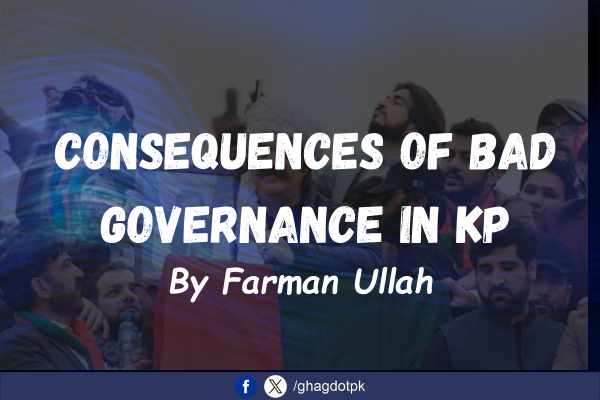By Farman Ullah
Khyber Pakhtunkhwa (KP) is grappling with the dire consequences of poor governance, which has far-reaching implications for its citizens. It has affected almost every sector of the province.
Poor line and order situation
The province has witnessed a record rise in terrorism in 2024, with 492 documented cases of terrorism and attacks, claiming the lives of 228 police officers and many others. Despite swift action from security forces, resulting in the death of 203 terrorists and the arrest of 616 others, the year has been just as perilous for the police force as 2023.
The recent attack on foreign diplomats in Swat has raised serious concerns about the province’s law and order situation. On September 22, a convoy of diplomats was targeted in Malam Jabba, resulting in the death of one police officer and injuries to three others.
According to a report released by an Islamabad-based think-tank, Pak Institute for Peace Studies (PIPS),29 out of the 59 terrorist attacks reported across the country in August took place in KP.
Educational Backwardness
Thousands of public schools in KP lack essential facilities such as toilets, clean drinking water, and electricity. A staggering 2,414 schools are missing these basic amenities, with 1,149 schools lacking access to clean drinking water and 1,253 schools having no toilet facilities.
The higher education sector in the province, where about 25 public sector universities are operating without vice-chancellors (VCs), feeble education standards and research work immensely.
Economic Consequences
Poor governance hinders economic growth and development in KP. Weak institutions fail to provide an environment conducive to private investment and productive economic activity, perpetuating poverty and inequality.KP’s government strict regulations for the Pakistan Poverty Alleviation Fund (PPAF) have led to the suspension of PPAF services in KP. The PPAF focuses on empowering local communities through interest-free loans, skill development programs and social services.
Social Implications
Bad governance erodes trust in institutions and undermines social cohesion. Widespread disillusionment among citizens, particularly the youth, can have long-term consequences, including increased radicalization and social unrest.
Institutional Weaknesses
Inadequate transparency and accountability mechanisms, ineffective human resource management, and lack of independence from politics exacerbate these weaknesses.
Way Forward
To address these challenges, the KP government must prioritize transparency, accountability, and institutional reform. Establishing effective human resource management systems, promoting civic engagement, and strengthening support systems for vulnerable populations are critical steps toward improving governance. By tackling these issues, KP can create a more equitable society and unlock its economic potential.






